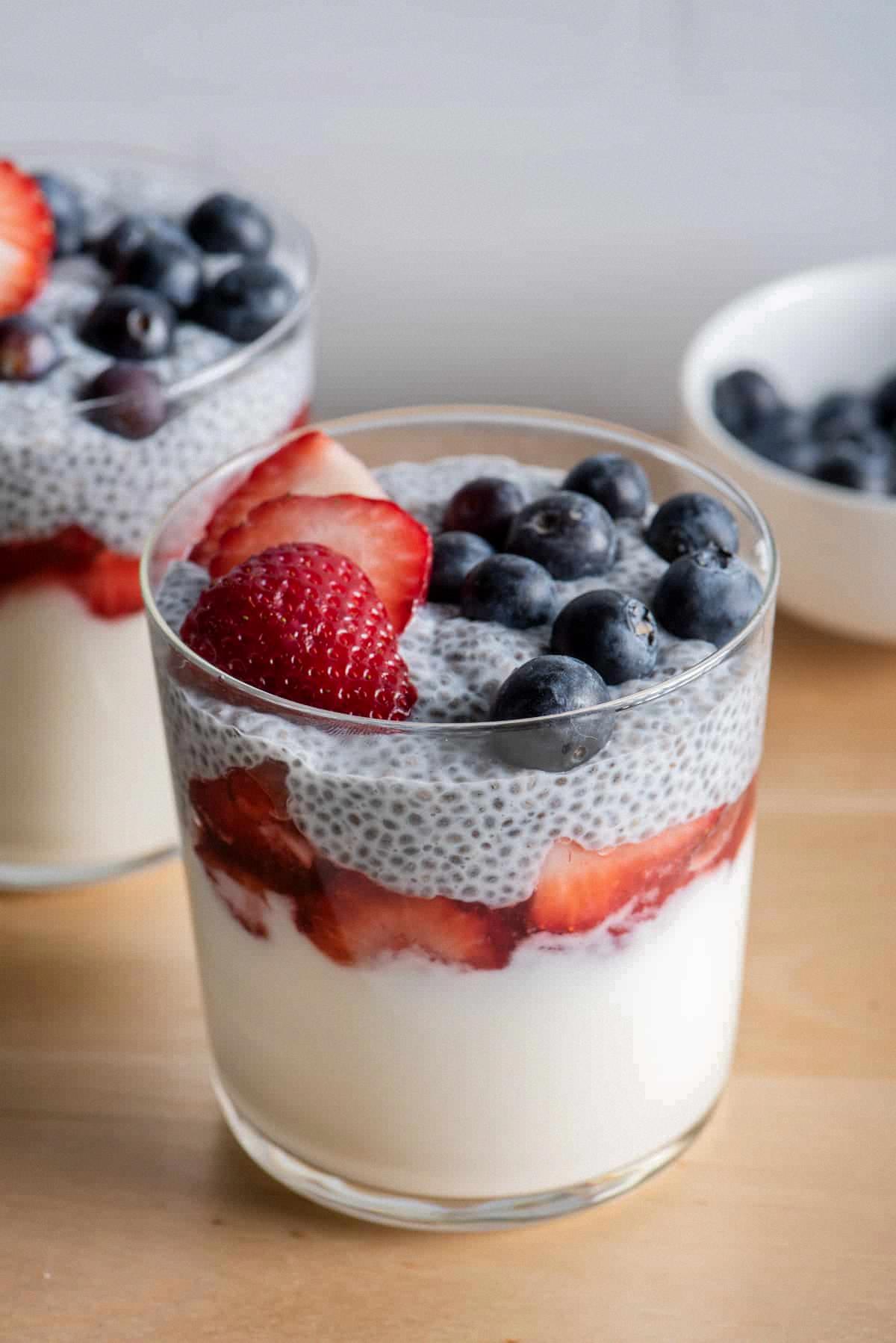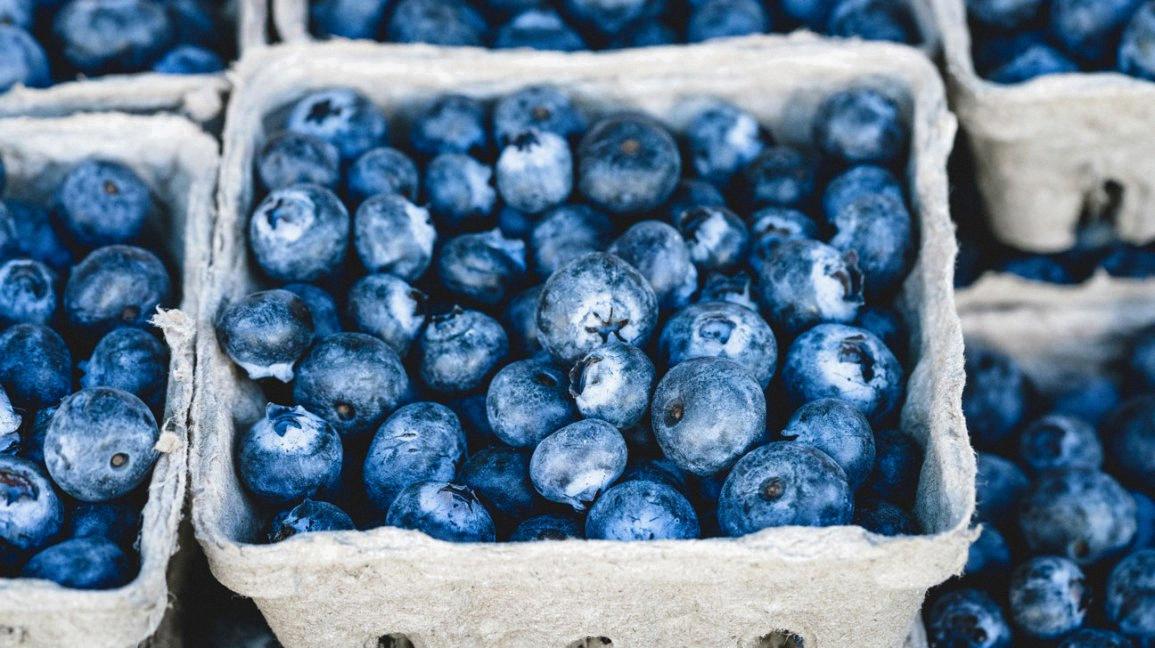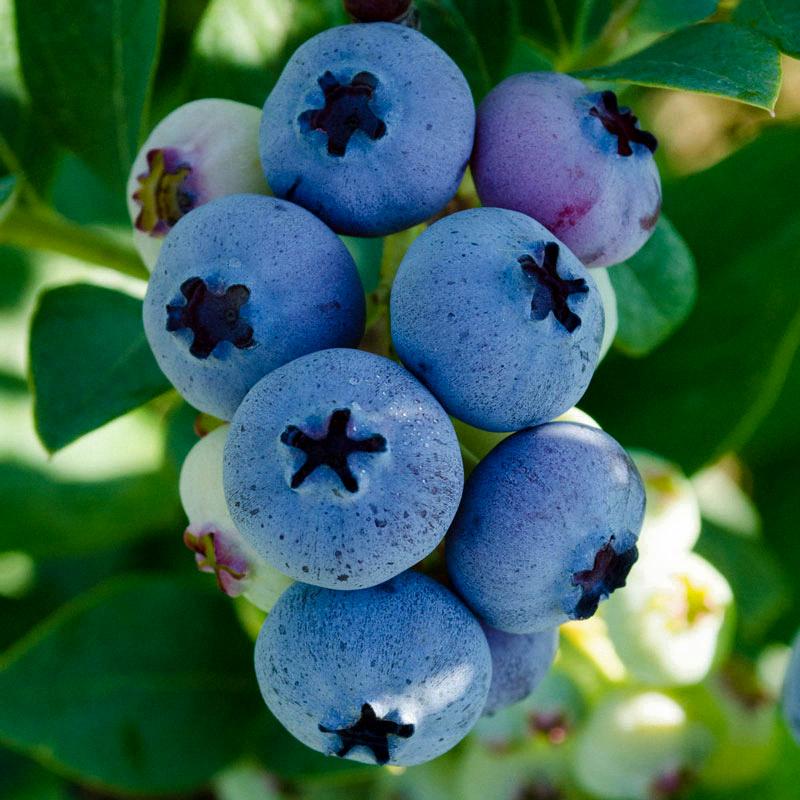Blueberries are a popular and delicious fruit that are enjoyed by millions of people around the world. They are often used in a variety of recipes, including smoothies, pies, and jams. But have you ever wondered if blueberries have seeds?
The answer is yes, blueberries do have seeds. In fact, each blueberry contains about 50 small seeds. While the seeds are not usually noticeable when you are eating the fruit, they are present and serve an important purpose in the plant’s reproduction.
The seeds in blueberries are actually quite small and are located in the center of the fruit. They are surrounded by the juicy, flavorful flesh that we all love to eat. While some people may find the seeds to be a bit annoying, they are actually quite beneficial.
When a blueberry plant produces fruit, the seeds inside the fruit are dispersed through varius means, such as being eaten by birds or animals, or falling to the ground and being spread by wind or water. This helps to ensure that the plant can continue to grow and produce more fruit in the future.
While blueberries do have seeds, they are not as noticeable or as large as the seeds in some other fruits, such as watermelons or grapes. This makes them easy and enjoyable to eat, without the need to spit out or remove any large seeds.
In summary, blueberries do have seeds, but they are small and not usually noticeable when you are eating the fruit. These seeds are an important part of the plant’s reproduction and help to ensure that the plant can continue to grow and produce more fruit in the future. So, the next time you enjoy a delicious and juicy blueberry, remember that there are tiny seeds inside that are helping to ensure the future of the blueberry plant.
Do Blueberries Come in Seedless Varieties?
Blueberries are a popular fruit known for ther tart yet sweet taste, and many people often wonder if there are seedless varieties available. However, it should be noted that there are no seedless blueberry varieties currently available in the market. Blueberries are a type of berry that contains small, edible seeds, which are not usually noticeable when consuming the fruit. While some fruits, such as grapes, have been selectively bred to produce seedless varieties, this has not yet been achieved with blueberries. Nonetheless, the seeds in blueberries are small and do not affect the flavor or texture of the fruit, making them a delicious and nutritious snack.

Source: feelgoodfoodie.net
Number of Seeds in a Single Blueberry
Blueberries typically contain around 50 small seeds per berry. These seeds are very small and are located inside the flesh of the berry. Unlike some fruits, such as cherries or peaches, blueberries do not have a stone or pit in the center. Instead, the seeds are scattered throughout the fruit. It is worth noting that the exact number of seeds in a single blueberry can vary depending on factors such as the variety of blueberry, growing conditions, and other environmental factors. However, on average, you can expect to find around 50 seeds in each blueberry.
Fruits Without Seeds
There are sevral varieties of fruits that do not have seeds or have very few tiny seeds. Some of the common examples of seedless fruits include watermelons, grapes, and tomatoes. Seedless watermelons have become increasingly popular due to their convenience and ease of consumption. Seedless grapes, such as the Termarina rossa, have a thinner skin and a sweeter taste than their seeded counterparts. Additionally, there are several types of seedless citrus fruits, such as oranges, lemons, and limes, which are produced through a process called parthenocarpy. This method results in fruits that are seedless or nearly seedless, making them more enjoyable to eat or use in recipes. Another recent development in seedless fruits is the seedless sweet pepper, which is a hybrid variety of Capsicum annuum that produces fruits without seeds. Overall, there are several varieties of fruits that do not have seeds, and they are becoming increasingly popular due to their convenience and improved taste.
Obtaining Seeds from Blueberries
Yes, you can get seeds from blueberries. Blueberry seeds are small and can be found inside the fruit. To extract the seeds, you can simply mash the blueberries and then strain the pulp through a fine mesh sieve to separate the seeds from the fruit. Alternatively, you can purchase blueberry seeds from a seed supplier or collect them from mature blueberry plants in your garden. Once you have the seeds, you can plant them in soil and grow your own blueberry plants. It’s important to note that not all blueberries will produce viable seeds, so it’s best to use frozen blueberries that have been stored for at leat 90 days to increase the chances of successful seed germination.
Do Store-Bought Blueberries Contain Seeds?
Yes, store-bought blueberries do have seeds, but they are very small and often not noticeable when eating. The seed coat of a blueberry is thin, which can give the impression that the berry is seedless, but it is not. The seeds are typically located in the center of the berry, surrounded by the juicy flesh. While the seeds may be too small to be bothersome when eating, they can still be a source of nutrition, as they contain healthy fats, fiber, and protein. Overall, whether you are eating fresh blueberries or ones purchased from a store, you will be consuming the seeds along with the fruit.

Source: healthline.com
The Reason Behind Seedy Blueberries
Blueberries are a delicious and nutritious fruit enjoyed by many people. However, some blueberries may be seedier than others. The reason for this can be attributed to a few factors.
Firstly, the variety of blueberry plant can affect the seediness of the fruit. Some varieties naturally produce more seeds than others. Therefore, it is important to choose a variety that suits your preferences, whether you prefer a fruit with fewer or more seeds.
Secondly, environmental factors can also play a role in the seediness of blueberries. If the blueberry plant is not receiving enough water, nutrients or sunlight, it may produce more seeds. Therefore, it is important to ensure the plant is receiving optimal growing conditions.
Lastly, blueberries can also become seedy if they are not properly pollinated. Bees and other pollinators play a crucial role in the pollination process, whih can affect the number of seeds in the fruit. Therefore, it is important to ensure that the blueberry plant has access to pollinators.
In summary, the seediness of blueberries can be influenced by the variety of the plant, environmental factors, and pollination. By selecting the right variety, providing optimal growing conditions, and ensuring proper pollination, you can enjoy delicious and seedless blueberries.
Do Blueberry Bushes Need to Be Planted in Pairs to Produce Berries?
Blueberries are self-fertile, meaning that they can produce fruit with just one plant. However, having at least two blueberry bushes can significantly increase the yield of your crop. When you have multiple bushes, they can cross-pollinate, which can lead to larger, more productive plants and a better harvest overall. It’s also essential to ensure that the bushes you choose have similar bloom times so that they can effectively cross-pollinate. While you can get berries with just one bush, having multiple blueberry bushes can improve the quality and quantity of your harvest.
Can You Eat Blueberries Raw?
Yes, blueberries can be eaten raw. In fact, they are a popular fruit to eat fresh and are often enjoyed as a snack or added to salads, smoothies, and yogurt. When eaten raw, blueberries provide a sweet and juicy burst of flavor. They are also a great source of vitamins, antioxidants, and fiber, making them a nutritious addition to any diet. It is important to note that blueberries should be thoroughly washed before consuming to remove any dirt, debris, or pesticides that may be present.
Do Organic Blueberries Contain Seeds?
Yes, organic blueberries do have seeds. Blueberries are a type of fruit that contains tiny seeds within the flesh. These seeds are soft and not very noticeable, making them easy to eat along with the fruit. While some fruits, such as mangos, have large and noticeable seeds, blueberry seeds are so small that they are often barely noticeable when consuming the fruit. So, if you are eating organic blueberries, rest assured that they do contain seeds, but they are not a bother to eat.
Where Are the Seeds Located in Blueberries?
The seeds in blueberries are located inside the fruit itself. Despite popular belief that the berry is the seed, it is actually just the fleshy part of the fruit that surrounds the seeds. Each blueberry contains multiple tiny seeds, which can be difficult to see with the naked eye. If you are interested in planting blueberries from seed, you will need to extract the seeds by mashing the berries and separating them from the pulp. Once you have the seeds, you can then plant them to grow your own blueberry bushes.

Source: gurneys.com
Identifying a Fruit That Looks Like a Blueberry But Has a Seed
There are a few berries that resemble blueberries but have a single seed inside. One such berry is the black nightshade (Solanum nigrum), which grows in clusters and has a dark purple color. However, it’s important to note that black nightshade berries are toxic and should not be consumed. Another berry that looks like a blueberry but has a seed is the pokeweed (Phytolacca americana), which also has a dark purple color and ripens in late summer. However, like black nightshade, pokeweed berries are also toxic and should not be eaten. It’s important to be able to distinguish beteen these toxic berries and actual blueberries, which are safe and delicious to eat.
Conclusion
In conclusion, blueberries do have seeds, although they are small and not usually noticeable. Unlike some other fruits such as watermelons, tomatoes, grapes, and certain citrus fruits, there are no seedless varieties of blueberries. However, the seeds in blueberries are not typically considered a nuisance due to their small size and quantity. In fact, lowbush blueberries can easily be propagated from seed, making them an excellent choice for home landscaping or commercial farming. So, while you won’t find seedless blueberries at your local grocery store, the seeds in these delicious berries are nothing to be concerned about.
